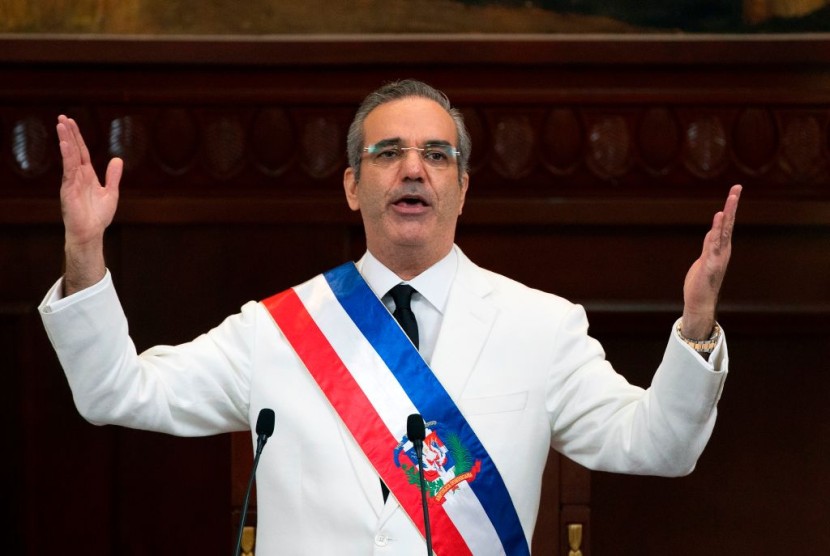
Dominican Republic President Luis Abinader has ordered the closure of all the borders with Haiti over a river dispute on the Haitian side that would use water from a river along the former's frontier.
Abinader said air, sea, and land borders would close starting at 6:00 a.m. local time on Friday and remain shut "until necessary." The announcement signaled that last-minute talks between the countries had failed to finalize.
Dominican Republic Closes Borders With Haiti
Closing the borders is a rare decision for the Dominican Republic and could potentially hit both economies, though it would affect Haiti more. The move was in response to the excavation of a canal by a farming group on the Haitian side that targeted waters from the Massacre River, which runs along the border shared by the two nations on the island of Hispaniola.
In a statement, the International Crisis Group said that work on the canal had already been suspended since the July 2021 assassination of President Jovenel Moise. It added that work resumed based on inaction by the Haitian government, which it argued had failed to respond to the problems created by the drought in the agricultural area of the Maribaroux Plain, as per the Associated Press.
The organization also said that it had seen no evidence suggesting that any major politicians or powerful business people were behind the effort, which is what the Dominican government has claimed.
In recent days, President Abinader suspended the issuance of visas to Haitians and closed the border near the northern town of Dajabon. The move paralyzed a key economic lifeline for Haitian residents who buy and sell goods in the area several times a week. People living in Haiti but working in the Dominican Republic also cross the border daily.
In a statement, Haitian businessman Pichelo Petijon said that these people are also suffering a lot in Dajabon and Haiti. He added that there were millions of dollars in losses caused by the border closure between the two regions.
River Dispute
On Wednesday, a Haitian delegation met with the Dominicans in Santo Domingo, the capital, amid the rising tensions. According to the New York Times, they conducted 11th-hour negotiations but failed to make any apparent resolution on the issue.
In announcing the closure of the borders, Abinader said that the Army, the Navy, and the Air Force will be prepared to comply with his decision to close the borders. On Thursday, the Haitian government released a statement responding to Abinader's decision, saying it can "sovereignly decide on the exploitation of its natural resources."
The Dominican Republic president also said that even if the Haitian government, which is struggling to address a surge in deadly gang violence, cannot control the canal's construction, his country would be capable enough.
He noted that they have been prepared for several weeks for this situation and the potential peace force in Haiti. Abinader's decision came after initially threatening such a move earlier this week before construction began, said Aljazeera.








